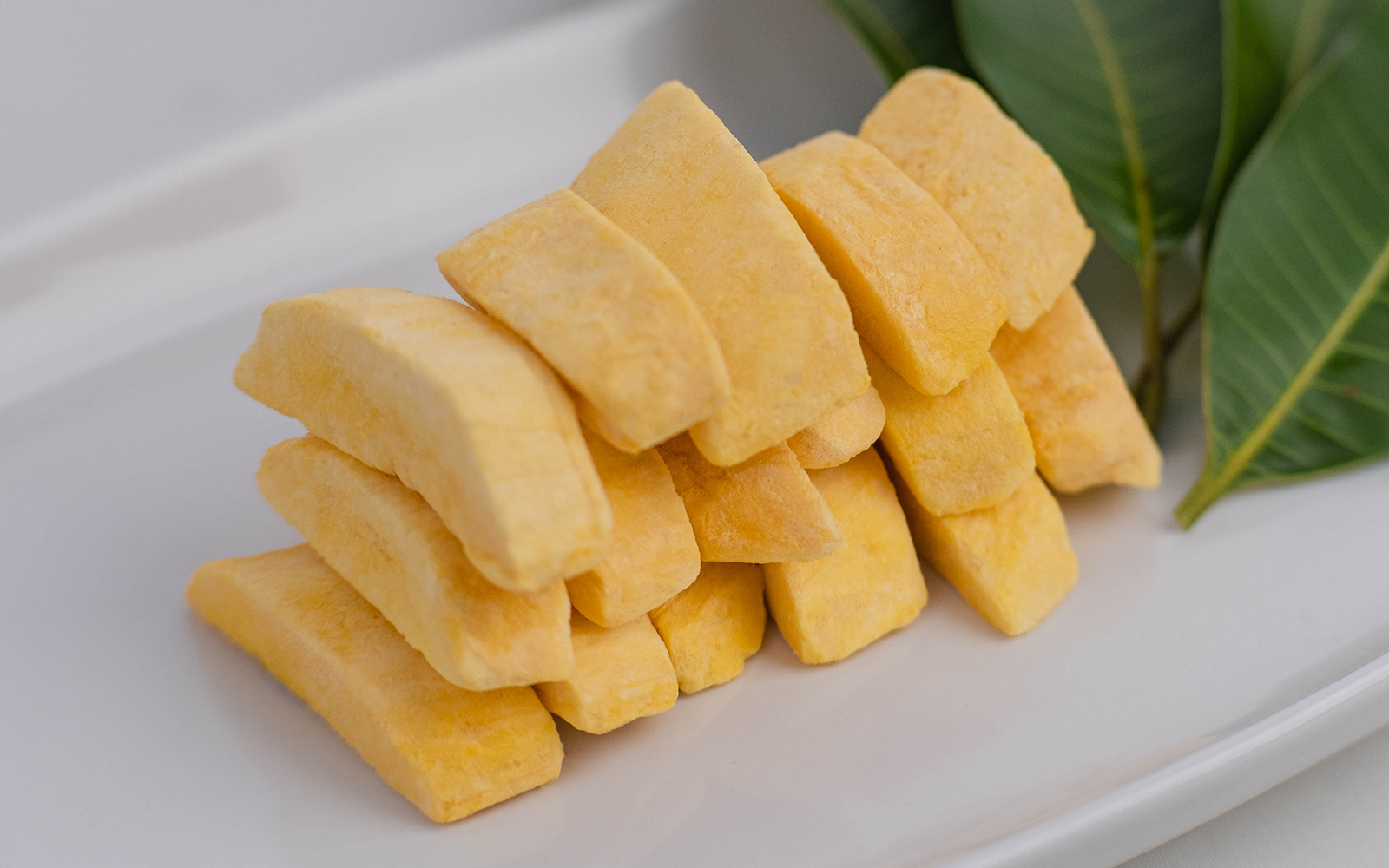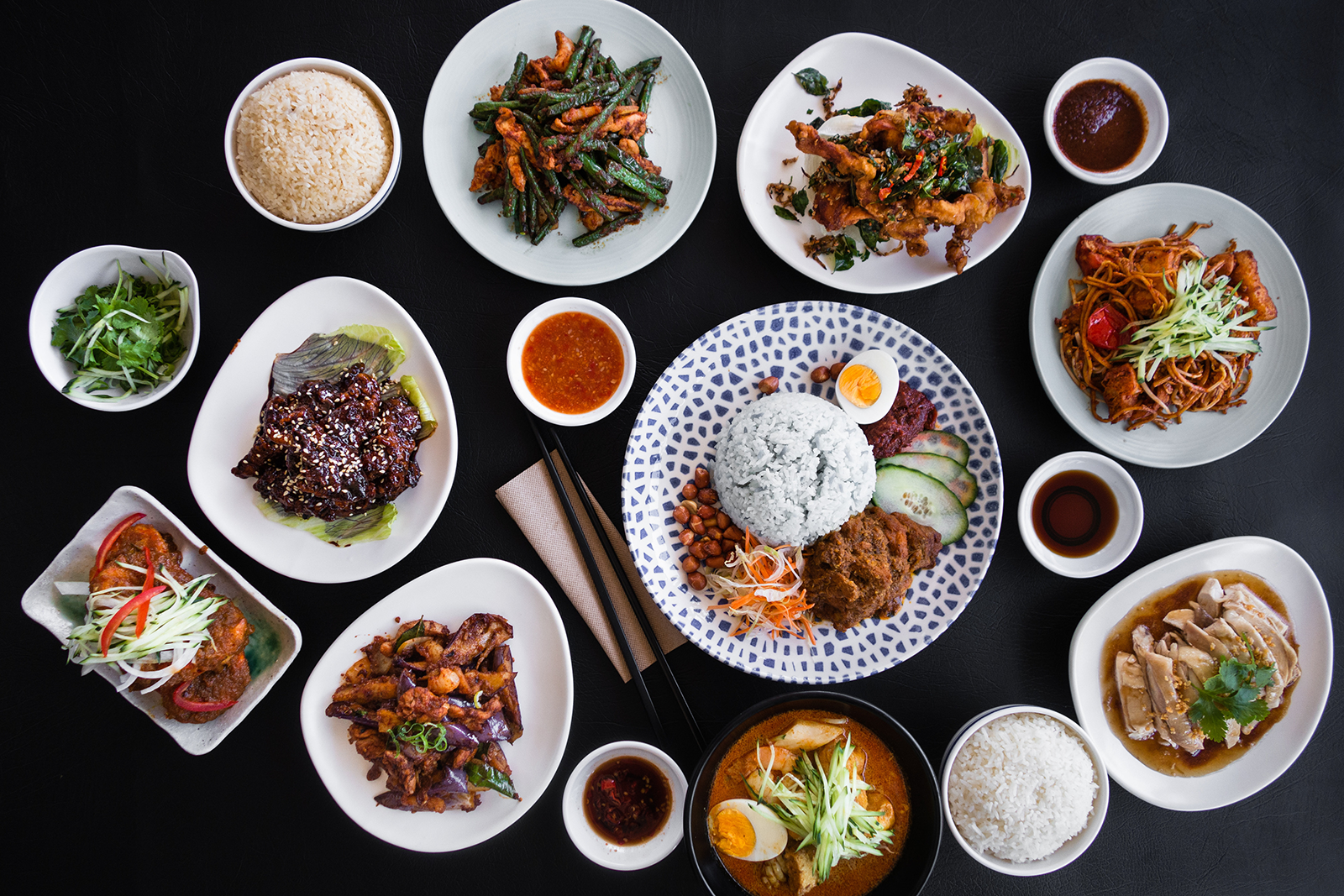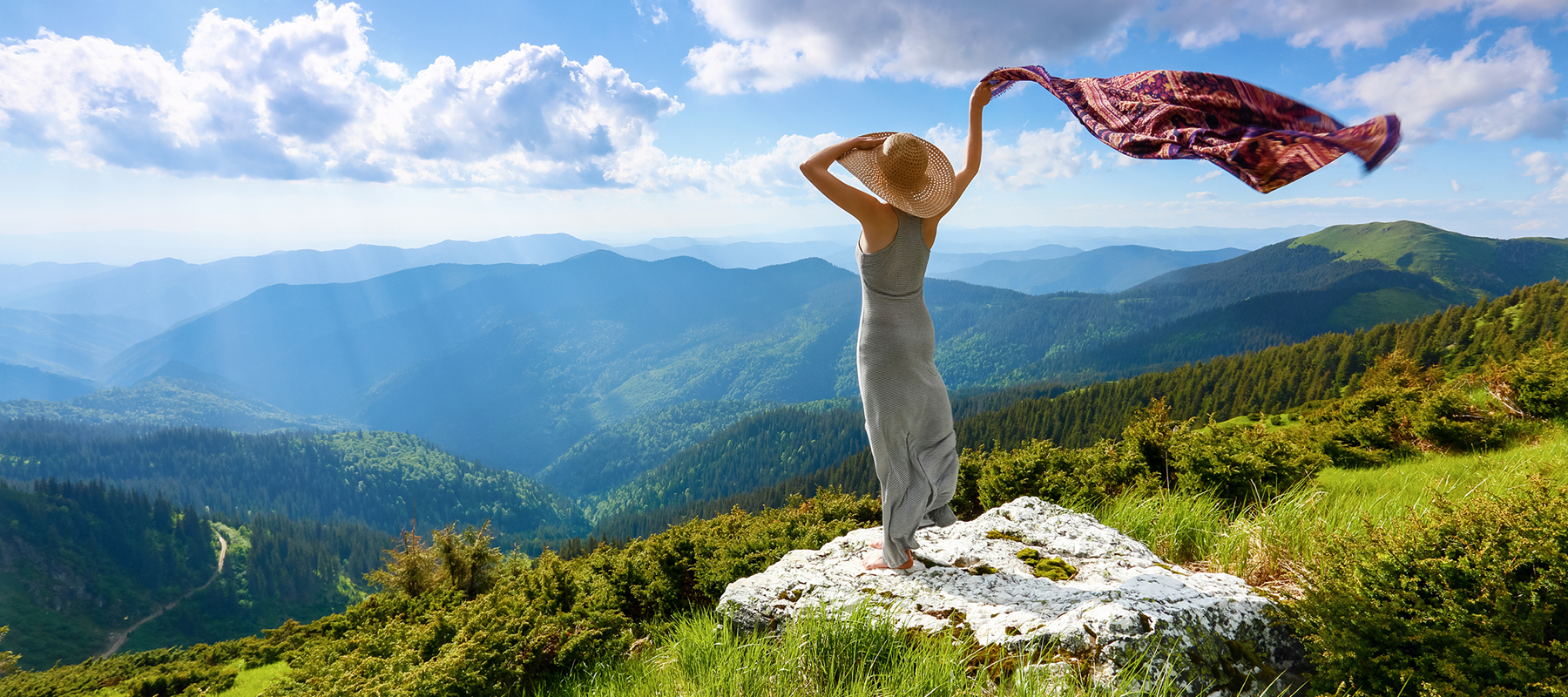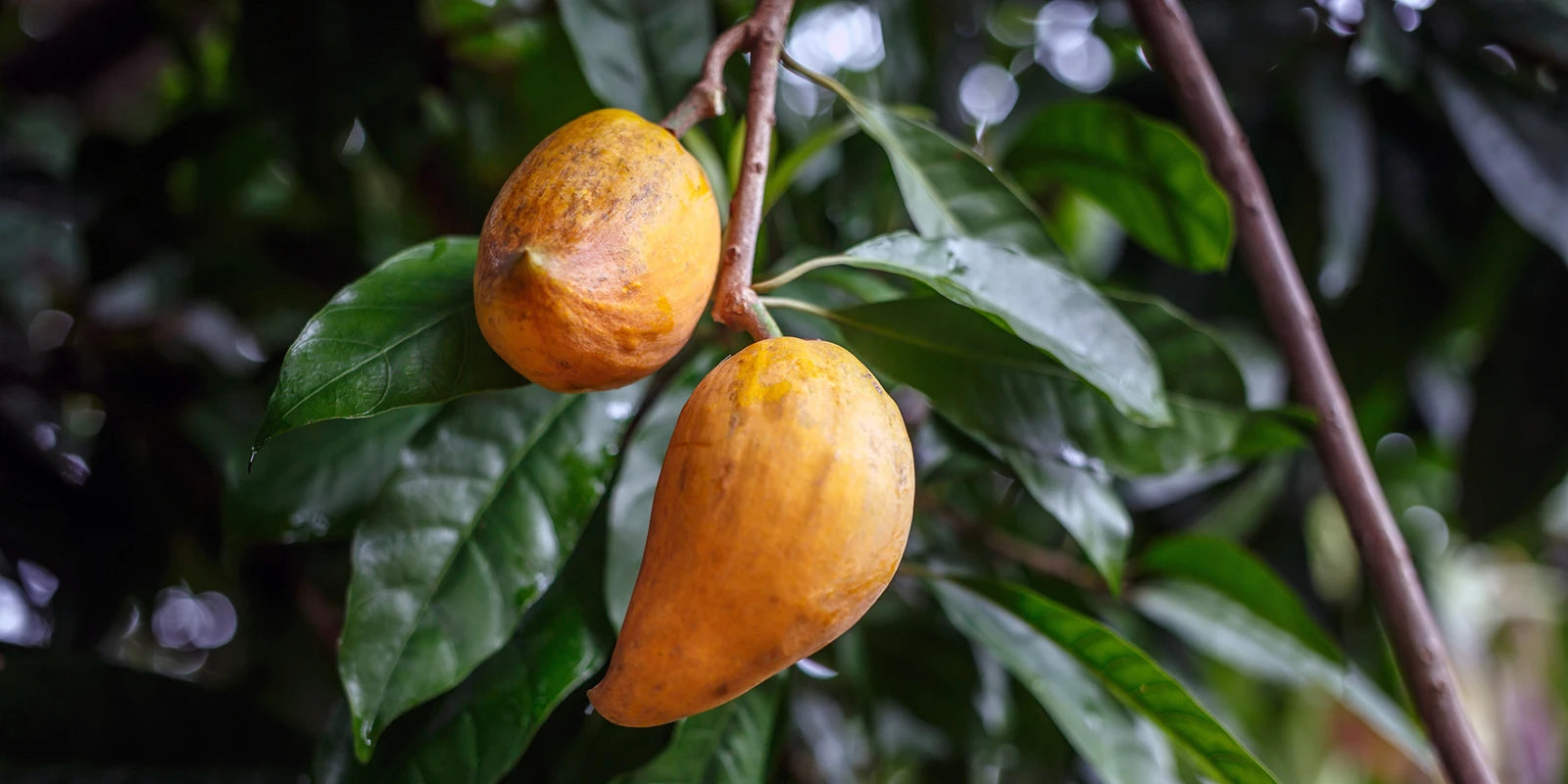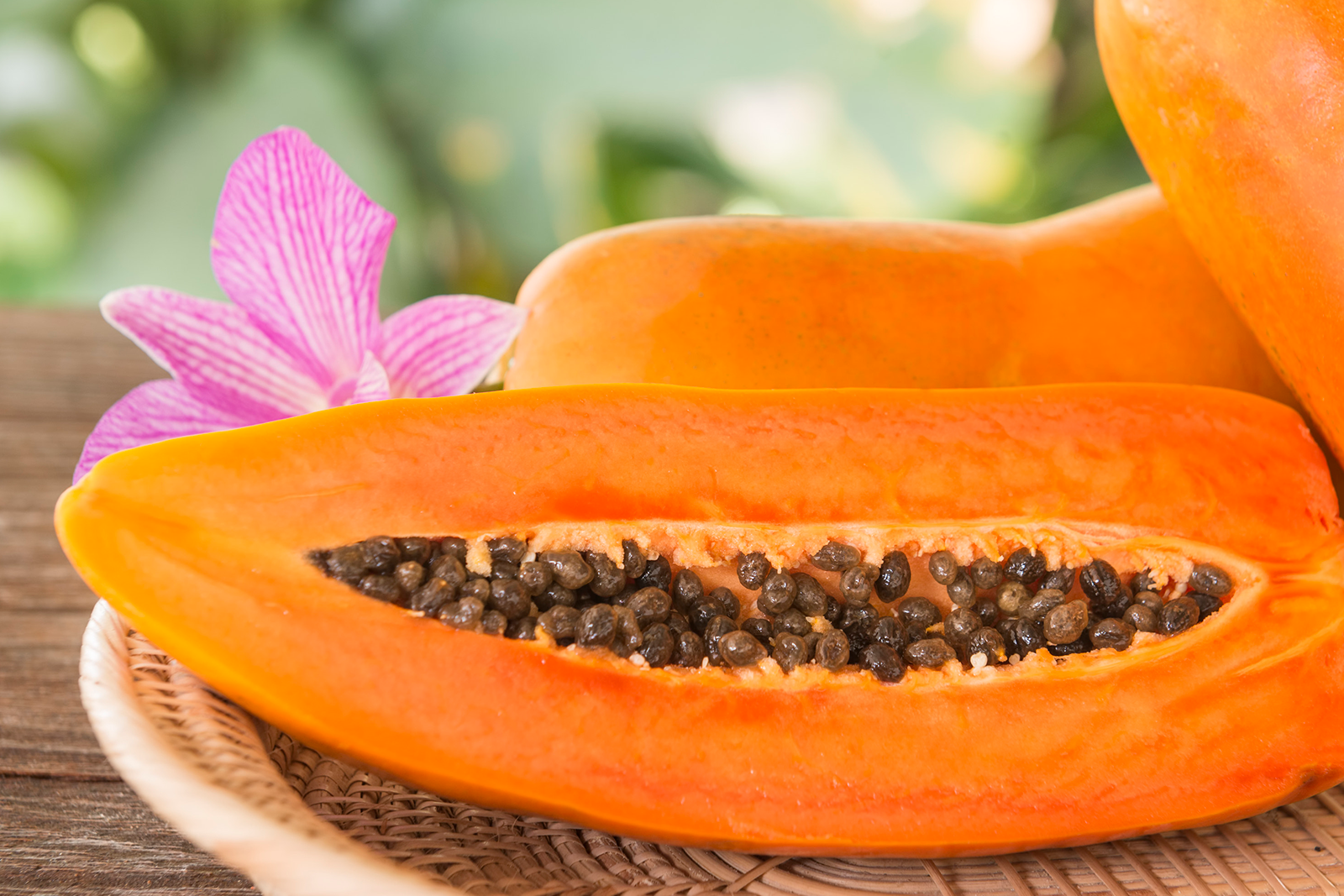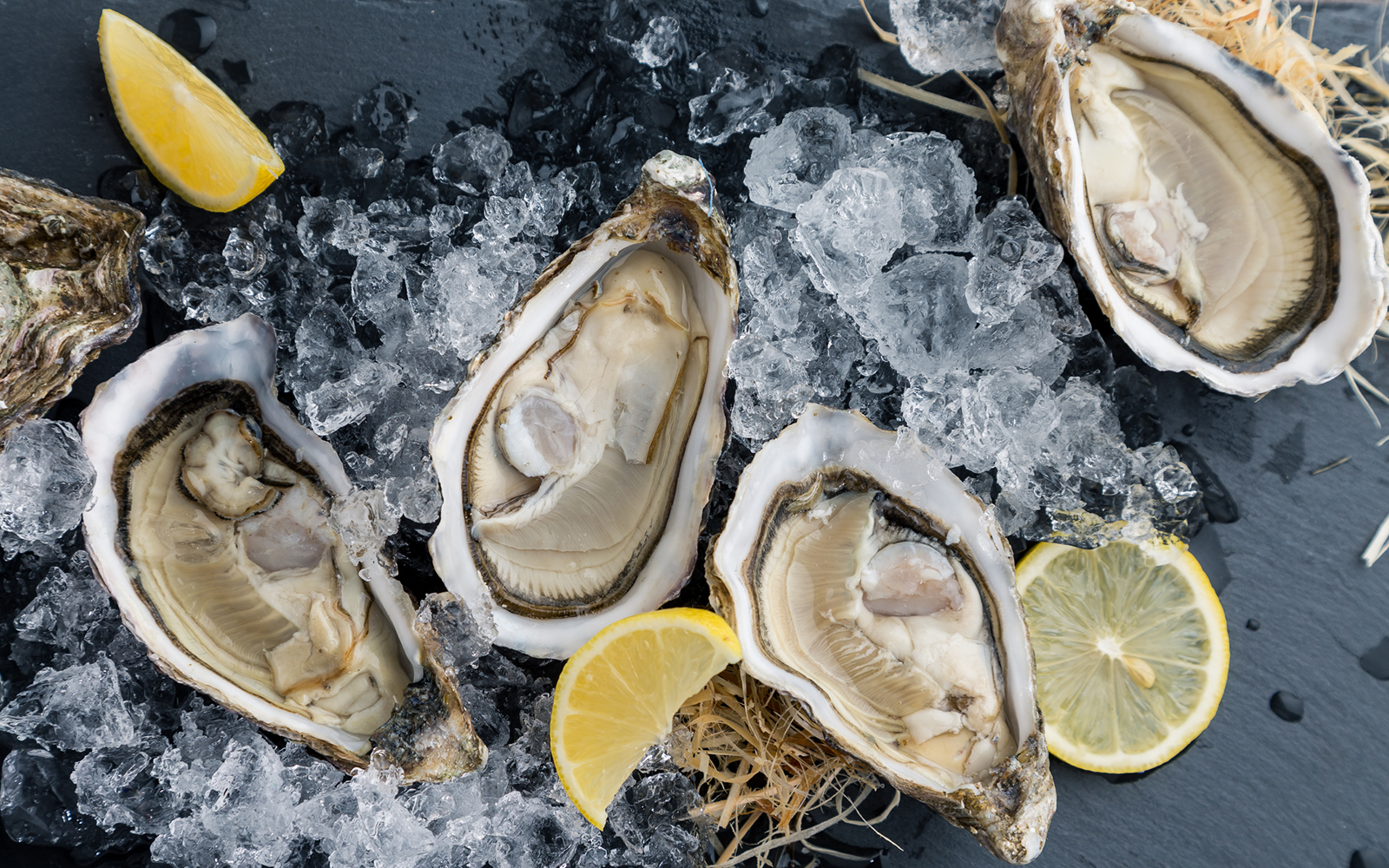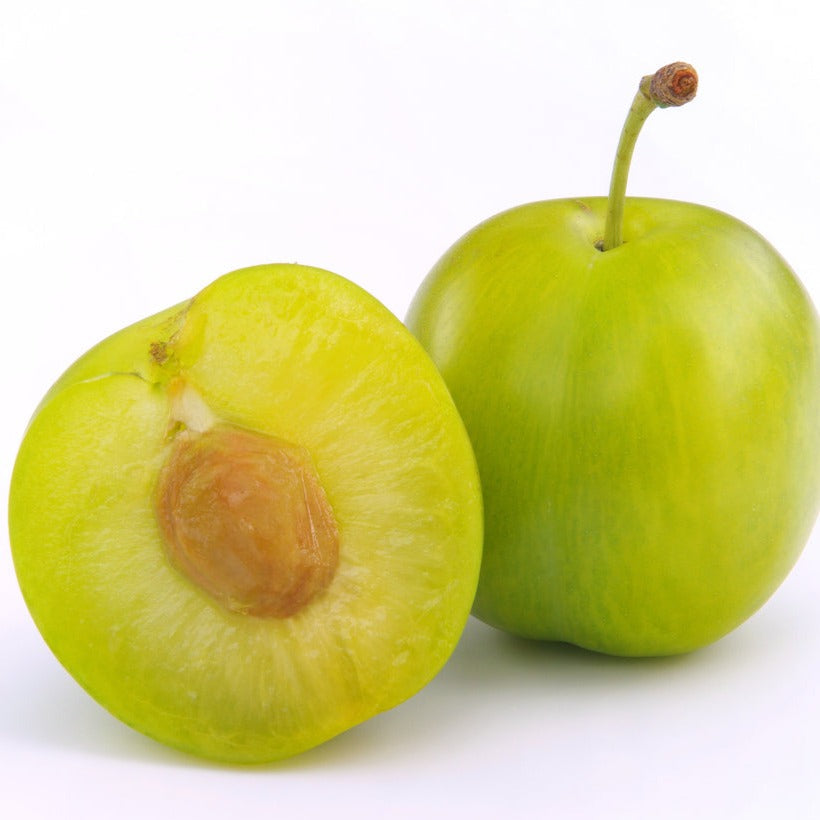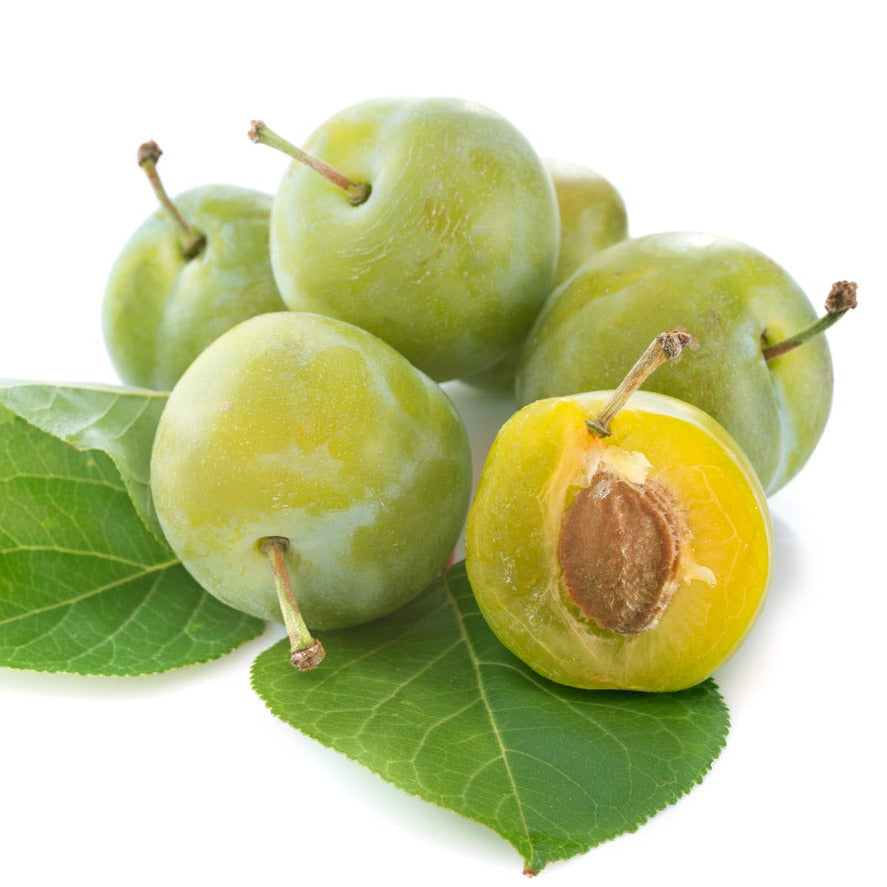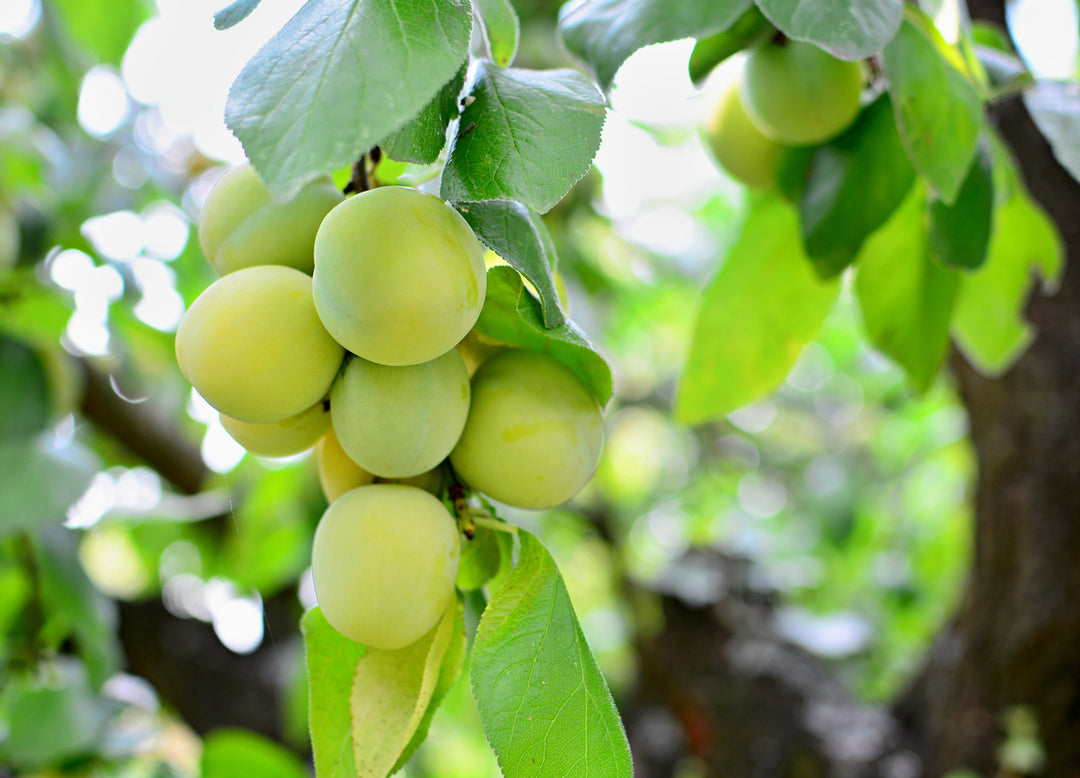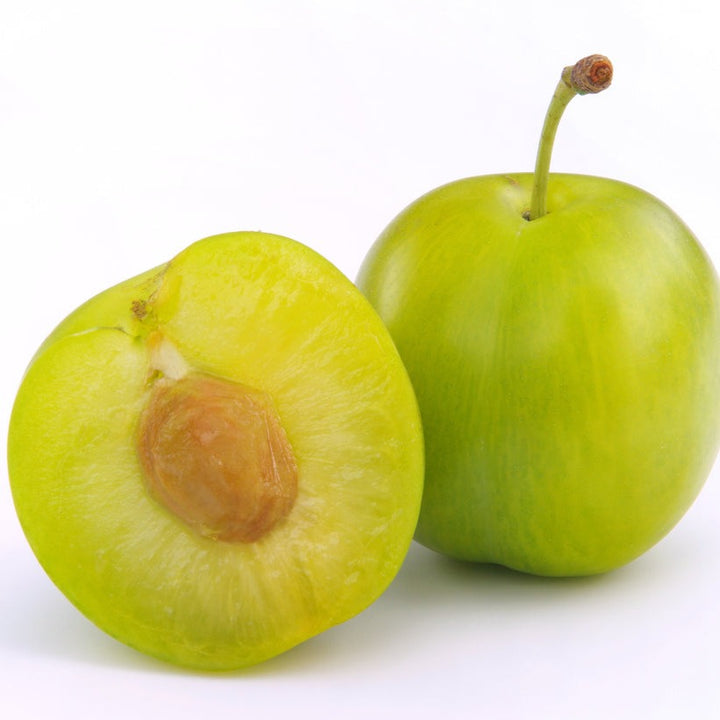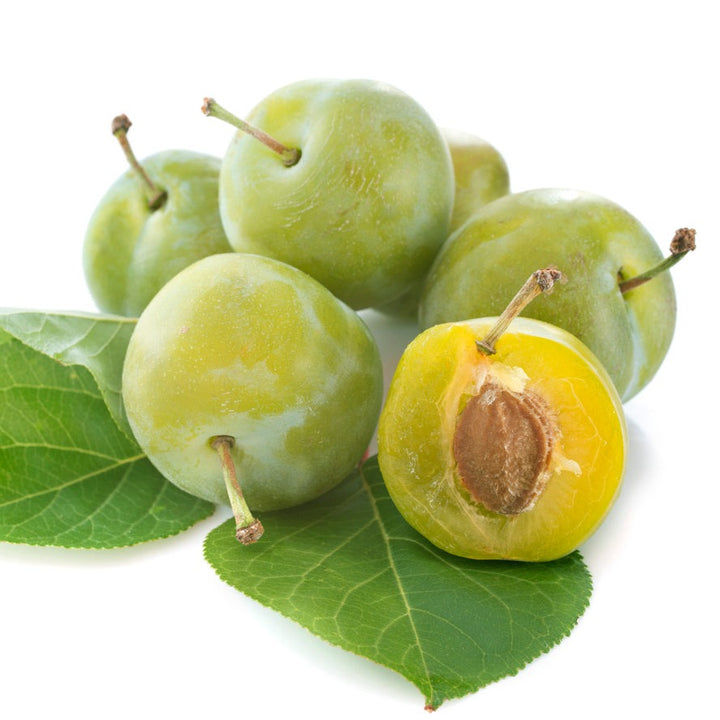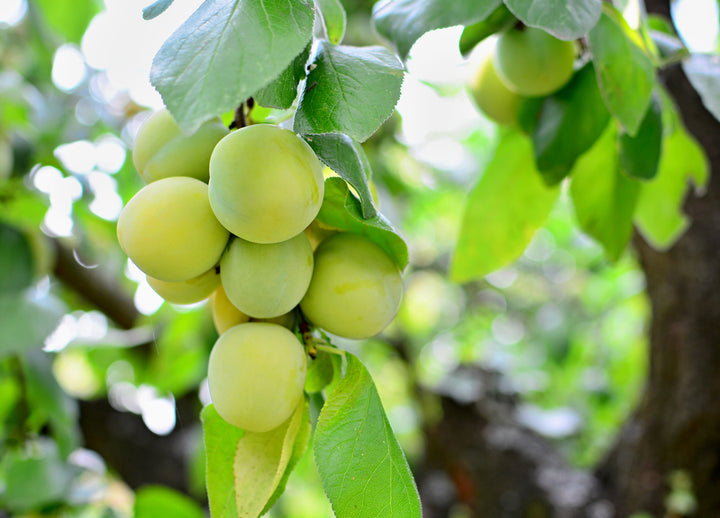Greengage Plum - Matured and Grafted Plant
Greengage Plum (Prunus domestica)
Grab the Finest European Dessert Plums!
A well established and finest the Queen of Plums - The greengages are a group of cultivars of the common European plum. The first true greengage came from a green-fruited wild plum which originated in Iran. Greengages are grown in temperate areas and are known for the rich, confectionery flavour. They are considered to be among the finest dessert plums
Greengage plums have a sweet, honeyed, and syrup-like flesh combined with acidity, creating a balanced and pleasant flavor composed of dried apricot, ripe mango, and citrus marmalade nuances.
The Greengage plum is self-sterile, but needs a pollinator to set a crop. Plums, greengages and damsons are all Prunus domestica trees, and therefore they can all cross-fertilize, as long as they are compatible in terms of flowering time.
Plant is matured and tall. Some branches may have to be cut down to keep it to the box. We will endeavour to only cut it if necessary.
The plant will grow up to 2m tall and can easily be pruned down. Note: this is a matured plants and not a new grafted plant.
Plant Care
- Soil: Prefers rich, well-drained soil with a neutral pH.
- Watering: Maintain consistent moisture, especially during fruit development. Avoid waterlogging.
- Temperature: Grows best in temperate climates with cold winters to break dormancy.
- Light: Full sun to ensure productive fruiting.
- Fertilising: Apply a balanced fertilizer like 10-10-10 in early spring. Follow up with a potassium-rich feed during the fruiting season.
- Pruning: Prune in late winter for shape and to remove any diseased or damaged limbs.
- Mulching: Mulch around the base with organic material to maintain soil moisture and temperature.
- Pest Control: Watch for plum curculio and aphids. Manage these pests using appropriate integrated pest management strategies.
- Flowering and Fruiting: Flowers in early spring with fruits ripening by late summer.
- Potting: Can be grown in pots, but regular pruning and careful watering are necessary.
- Feeding Regime: Higher potassium fertilizer applications during the growing season can boost fruit quality and yield.
We ship our plants and garden supplies throughout New Zealand. Due to the increased costs of shipping and packaging, we now apply a delivery charge. After offering free shipping for three consecutive years, we find it necessary to adjust this policy to align with current market conditions. However, we have lowered our prices to help offset this change.
Please note, we do not ship plants or garden supplies internationally from New Zealand. We do export plants and tissue culture materials from our overseas nursery, which requires a minimum order. Please contact us at hello@exoticanz.com to discuss your specific requirements.
Shipping (plants) from:
North Island Urban $25
North Island Rural $35
South Island Urban $25
South Island Rural $35
Shipping Garden Supplies:
North Island Urban $20
North Island Rural $25
South Island Urban $35
South Island Rural $45
Delivery
- Our plants are available for shipment from September to April, depending on stock levels. Typical delivery times range from 5 to 7 business days, although they can take up to 10 business days depending on the destination.
- We take extra care in packaging; most of our plants are secured in bespoke inserts and shipped in individual boxes to ensure they arrive undamaged.
- Deliveries are scheduled once a fortnight, typically on Monday. If you place your order over the weekend, we aim to dispatch your plants on the following Monday. This scheduling allows our team to prepare your order thoroughly and ensures the courier has sufficient time to deliver your plants safely, avoiding any unnecessary delays over the weekend.
- All orders are shipped via courier track and trace service (not signature required)
- We cannot deliver to PO Box addresses.
- If you have a rural address, please contact us beforehand to discuss the best delivery options and avoid any potential issues.
Additional Delivery Information
- Most plants are shipped with soil. During the cooler months, we closely monitor weather conditions and may temporarily delay shipments if the weather is particularly severe. Our packing process includes adding insulation when necessary to protect the plants against temperature extremes.
- In summer, we ensure that plants are thoroughly watered before they leave our nursery. Occasionally, we may need to ship plants bare-rooted, particularly when they cannot be comfortably re-potted into smaller packaging for shipping. We will always discuss this with you in advance if your plant needs to be shipped in this manner.
- It's important to note that shipping can be a stressful experience for plants, often due to spending several days in a dark, confined space. While most plants withstand this with little to no stress, some may experience leaf drop. However, they generally recover quickly with some additional care, including proper watering and gradual reintroduction to light after arrival.


